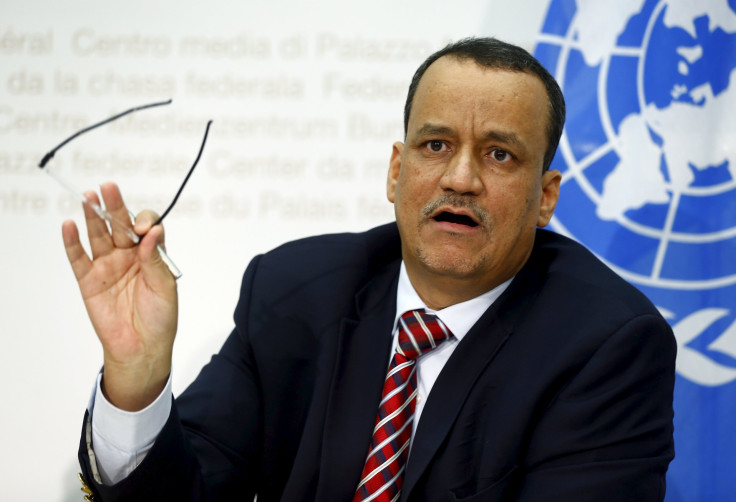UN Sees Progress In Yemen Talks But Urgent Need For Full Ceasefire

BERN, Switzerland -- Yemen's warring parties have agreed on a broad framework for ending their war at talks here but they first have to agree a permanent ceasefire, after a week-long truce was widely violated, the United Nations said on Sunday. U.N. Yemen envoy Ismail Ould Cheikh Ahmed said the two sides would meet again on Jan. 14. The location had yet to be set, although both Switzerland and Ethiopia were possible.
"The participants to these talks have unanimously agreed that the ultimate objective that we all have is the end of this war and therefore to have a permanent ceasefire," Ould Cheikh Ahmed told a news conference in the Swiss capital.
"In the next few days all my efforts will focus on that – a comprehensive and lasting ceasefire."
Yemen's foreign minister Abdel Malek al-Mekhlafi later told reporters a ceasefire which was due to end later this week had been extended for another seven days on condition that Houthi fighters adhere to the truce.
A military alliance of mostly Gulf Arab countries led by Saudi Arabia began bombing Yemen's Houthi movement, an ally of Iran, in March to try to restore the government of President Abd-Rabbu Mansour Hadi.
The conflict has killed nearly 6,000 people and plunged the impoverished country into a humanitarian crisis.
Ould Cheikh Ahmed said the two sides were still far from a ceasefire, describing the trust between them as "nil".
"It's very clear that in some cases the ceasefire was not respected and was violated from the first hours even of these talks," he said.
The participants agreed that at some point both sides would release prisoners, and that they would put forward proposals on how to manage the withdrawal of forces and heavy weaponry. Ould Cheikh Ahmed said he was optimistic.
"We have had very senior military from both sides sitting together in the same room, discussing, looking at the map, contacting their operation room to stop – this is incredible progress in my view. These people were just at the front, battling against each other."
(Reporting by Tom Miles; Editing by Andrew Bolton)
© Copyright Thomson Reuters 2024. All rights reserved.




















